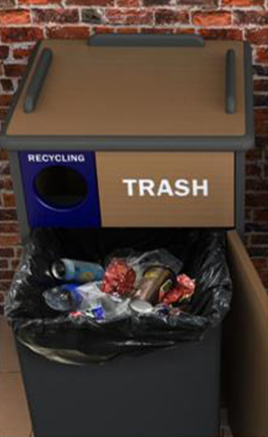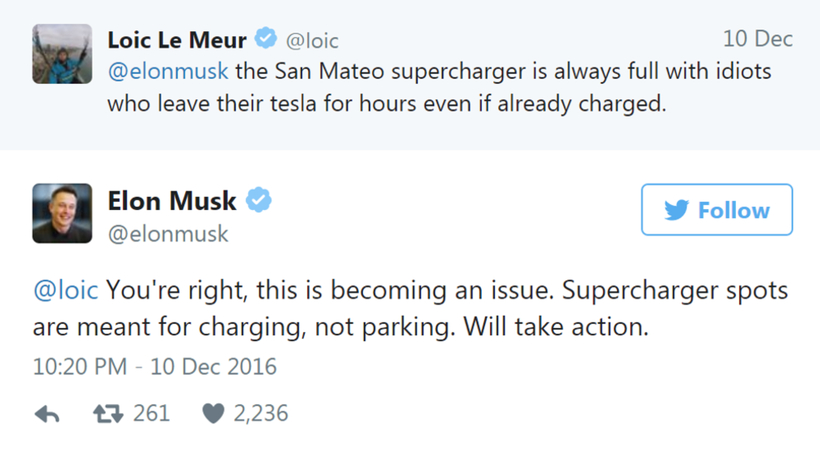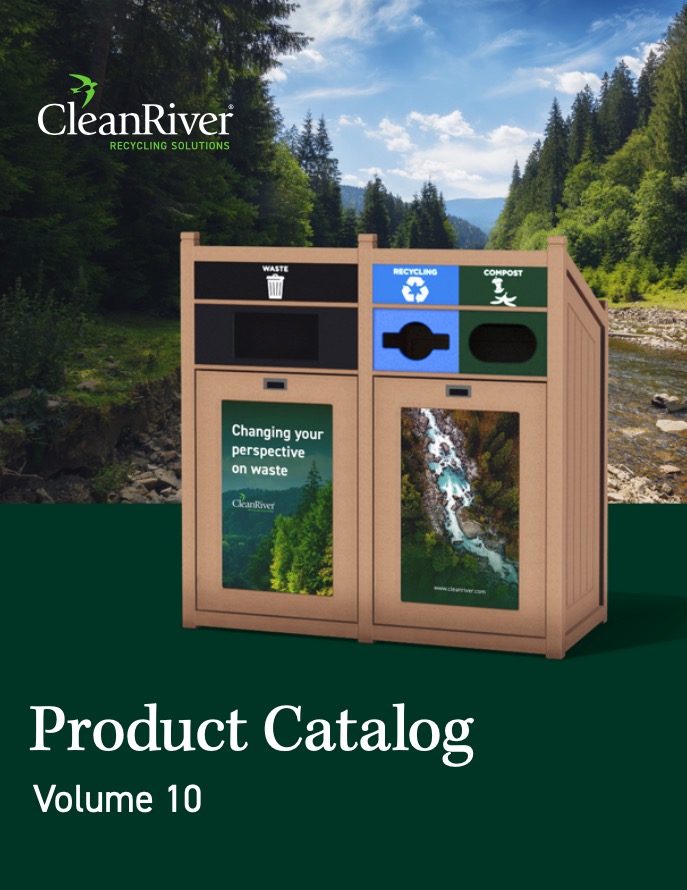Share
We’ve all seen social media posts where disgruntled consumers in various venues have taken pictures of recycling bins that look to be separating waste and recycling. However when the savvy consumer has opened the recycling bin they’ve discovered that trash and recycling are all going into one container inside.
The impact of misleading your consumers whether intentionally or not can be catastrophic to your bottom line. Especially when you consider the following:
- Adweek reports that 93% of millennials rely on blogs and user/consumer reviews before making a purchase.
- 59% of millennial consumers post negative experiences online (Adweek)
- A survey of over 1000 people by ZenDesk found that 95% of respondents who have had a bad experience said they told someone about it.
- A study by Cone Communications found that 90% of consumers would boycott a company if they learned of irresponsible or deceptive business practices.
At a recent industry event, CleanRiver’s CEO Bruce Buchan, challenged businesses to think about the impact Social ROI has on their profitability, in relation to their recycling programs:
“If 90% of consumers would stop buying your product, or using your service if they perceive you to be greenwashing, imagine the financial impact that would have on your business?”
Being a sustainable company is more than just doing the right thing, it’s profitable. A global study by MIT Sloan Management Review discovered that the extent to which a company incorporates sustainability into its business model often correlates to an increase in profit. Recycling is an integral part of sustainability and can generate a substantial financial ROI through cost avoidance and cost savings.
How Social Awareness of Recycling Creates Revenue

Recycling is a very visual component in your sustainability efforts. A recent global study by Nielsen found that 55% of consumers are willing to pay more for products and services provided by companies that are committed to a positive social and environmental impact. “Consumers around the world are saying loud and clear that a brand’s social purpose is among the factors that influence purchasing decisions” said Amy Fenton, global leader of public development and sustainability, Nielson.
The study also reported that millennials (age 21-34) represent 51% of the respondents who are willing to pay extra for sustainable products. And that millennials are three times more agreeable to sustainability actions than Generation X (age 35-49) and twelve times more than Baby Boomers (age 50-64)
This data was summarized in a powerful statement by the National Restaurant Association’s Hudson Riehle at the NRA conference in 2014 who stated that if businesses didn’t address sustainability they’d be out of business within 10 years.
How to Generate Positive Social ROI

Buchan believes that consumers will “Love you for trying. But hate you for lying”. In other words be honest and open with what’s happening with your recycling program, consumers will appreciate your efforts. They won’t however appreciate feeling like they are being lied to which often happens when they see things like the waste and recycling all going into the same bin.

Buchan advises CleanRiver clients to take a leaf out of Elon Musk’s book. When a disgruntled consumer tweeted about his frustration of people treating Tesla charging stations like parking lots, Elon Musk responded immediately and took action.

Buchan believes that consumers will understand if you explain what’s going on with your recycling program. If there’s been a custodial mistake and the recycling has been emptied with the trash then own up immediately and let everyone know what steps you’ve taken to make sure this doesn’t happen again. This all ties into Communication which is one of the integral 3C’s of successful recycling programs (Culture, Communication and Collection):
- Tell people about your recycling program
- Let everyone know what you’re collecting and why (use high-impact graphics on your bins)
- Show everyone your goals and how you are measuring up
These three simple communication strategies help employees, customers, students and other key stakeholders know what you are doing and helps them get on board with your recycling program.
If you’d like more information on how to implement a rock star of a recycling program, please call us at 1-888-646-4246 or email solutions@cleanriver.com.


